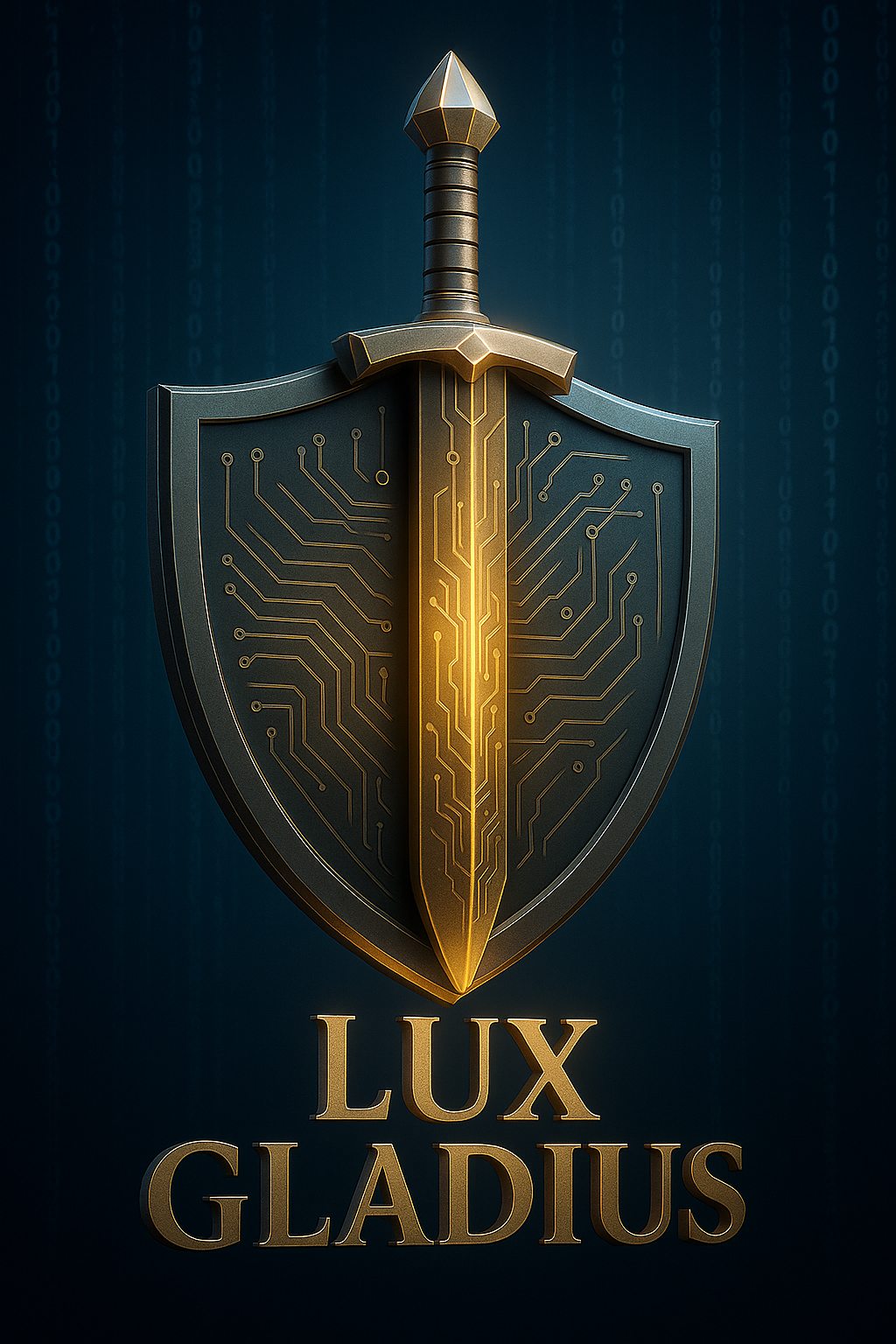Computer Forensics Utah – Imagine This: A Digital Crisis in Utah
Picture this: You own a thriving business in the heart of Utah’s tech corridor, Silicon Slopes. One morning, you open your inbox to discover a message—confidential client files have been leaked and someone is demanding payment to keep things quiet. Or maybe you’re an individual suddenly locked out of your personal accounts, worried your digital life is about to unravel. In both cases, panic sets in. What do you do next?
Welcome to the ever evolving world of computer forensics—a field that’s becoming essential for Utah’s businesses, legal professionals, and everyday residents. With cybercrime on the rise, data breaches making headlines, and digital investigations now a routine part of life, understanding how computer forensics works in Utah isn’t just smart; it’s necessary.
But why Utah, specifically? The Beehive State is quickly earning a reputation as the “Silicon Slopes” of the West, with a booming tech sector, innovative startups, and a unique legal landscape. That means more data, more risks, and a bigger demand for trusted digital detectives who can get to the bottom of any cyber incident.

In this series, we’ll break down everything you need to know about computer forensics in Utah: what it is, how it works, why it matters, who needs it, key stats, fun facts, and even a few insights on ethical digital investigation inspired by biblical wisdom. Let’s start with the basics.
-
- What is Computer Forensics? (Understanding the Basics)
If you’re picturing a crime TV show with someone in a dark room typing furiously, you’re not too far off—but there’s much more to it! In simple terms, computer forensics is the science of finding, recovering, analyzing, and preserving digital evidence from computers, smartphones, servers, and other devices. Think of it as detective work, but instead of searching for fingerprints, you’re looking for file trails, emails, deleted documents, or hacked accounts.
When is computer forensics needed? Here are a few real world scenarios:
-
- Cybercrimes: Like hacking, phishing, or ransomware attacks.
- Fraud or embezzlement: Where financial data needs to be traced.
- Data breaches: When sensitive information is exposed.
- Intellectual property theft: Protecting business innovations.
- Divorce or custody cases: Proving digital communications or infidelity.
- Employee misconduct: Investigating inappropriate workplace activity.
That’s just the start—almost any situation involving electronic evidence can benefit from a computer forensic expert’s skills.
But you might be wondering: how is this different from other IT or cybersecurity roles? While IT teams focus on keeping systems running and cybersecurity pros work to prevent attacks, computer forensics experts step in after an incident. Their job is to figure out what happened, when, how, and—most importantly—preserve that evidence so it can be used in a legal setting if needed.
Why Legal Procedures Matter
Here’s something you might not realize: if digital evidence isn’t handled correctly, it could be thrown out of court. Utah courts, like those elsewhere, have strict rules about the way evidence is collected and stored. If you or your IT team accidentally alter files, delete logs, or fail to document the process, you might lose your chance to hold the culprit accountable. That’s why certified computer forensic experts are trained to follow step by step procedures, keeping your case rock solid.
Stat to know: According to the Ponemon Institute, over 43% of data breaches in the United States involved improper handling of digital evidence, resulting in lost or inadmissible evidence in court.
-
- The Unique Landscape of Computer Forensics in Utah
You might not realize just how big the tech scene is in Utah until you look at the numbers. The state’s “Silicon Slopes” region—with cities like Lehi, Provo, and Salt Lake City—has become a haven for tech giants, ambitious startups, and everything in between. In fact, Utah’s technology sector grew by over 30% from 2016 to 2022, outpacing the national average and drawing both talent and, unfortunately, cybercriminals.
This booming growth brings opportunity and risk. Utah companies, large and small, now face:
-
- Higher risk of data breaches: Utah ranks in the top 15 states for reported cyber incidents, according to the FBI’s Internet Crime Report.
- Intellectual property theft: With so much innovation, protecting trade secrets is a must.
- Regulation headaches: Utah passed its own version of a data privacy law in 2022, adding another layer of complexity for businesses handling sensitive data.

Who’s on the Digital Front Lines in Utah?
Utah is home to a network of digital detectives—public agencies, private firms, and inhouse experts who tackle digital investigations every day. Notable players include:
-
- Utah Department of Public Safety’s Cyber Crime Unit – Handles major cyber investigations for law enforcement.
- Private computer forensics firms – Serving businesses, attorneys, and individuals facing digital disasters.
- University programs – The University of Utah and Utah Valley University now offer degrees in digital forensics, training the next generation.
Real Example (Anonymized)
A recent case involved a local tech startup that noticed suspicious file transfers late at night. A digital forensics team stepped in, quickly traced the activity to a disgruntled employee, and provided airtight evidence for a swift legal resolution. In another, a Salt Lake City law firm used digital forensics to recover vital emails in a high stakes civil case—leading to a favorable court outcome.
-
- Utah’s tech boom means computer forensics is more important than ever. Coming up next, we’ll dig deeper into the computer forensics process step
by step, so you’ll know exactly what happens when a digital investigation kicks off in the Beehive State. Whether you’re a business leader, attorney, or just a curious resident, understanding this process can make all the difference if you ever find yourself facing a digital dilemma.
-
- The Computer Forensics Process: Step by Step
So, what actually happens when the digital detectives get called in? The computer forensics process in Utah is surprisingly methodical—think less Hollywood, more careful science. Here’s how it typically unfolds:
1. Identification
The first step is figuring out what data is relevant. This means carefully scoping out which computers, phones, servers, or cloud accounts might hold the crucial information. For example, if a company suspects insider data theft, a forensics expert won’t just look at one laptop—they’ll map out a plan to examine every device that could hold evidence.
2. Preservation
Next up: preserving the evidence. This is absolutely critical, especially if a case could end up in court. Utah forensics teams use write blockers and forensic imaging tools to make bit for bit copies of hard drives or mobile devices, ensuring the original data isn’t changed in any way. Even a single keystroke or system reboot could alter timestamps or delete logs, so strict protocols are followed at every step.
3. Analysis
Here’s where the real detective work begins. Using specialized software like EnCase, FTK (Forensic Toolkit), or opensource tools such as Autopsy, analysts sift through mountains of digital data. They look for deleted files, hidden folders, suspicious emails, web histories, or malware. In Utah, many forensics experts are trained to spot local trends—like business email compromise (BEC) attacks or intellectual property theft in the tech sector.
4. Documentation
Every action is documented in detail. Forensics professionals keep a meticulous log of who accessed the evidence, what was done, and when—this “chain of custody” is essential for evidence to be admissible in Utah courts. If there’s even a hint that files were altered or mishandled, the whole case could fall apart.
5. Presentation
Finally, the findings are explained in clear terms. Whether it’s testifying in court, briefing an executive team, or preparing a report for law enforcement, Utah’s digital investigators know how to make complex technical details understandable. Their work often makes the difference between winning and losing a lawsuit, recovering lost assets, or catching a cybercriminal.
Quick Stat: In a 2023 survey by the Utah Technology Council, over 76% of local businesses that underwent a forensics investigation said the process helped them improve their security and legal outcomes.
-
- Who Needs Computer Forensics in Utah?
You might be surprised at how many people and organizations turn to computer forensics—it’s far from just a “big company” problem. In Utah, the need spans across:
-
- Businesses: From data breaches to disgruntled employees and intellectual property theft, companies of all sizes rely on digital investigation to protect their bottom line. According to the Utah Department of Commerce, nearly 45% of businesses in the state have dealt with a cyber incident in the past three years.
- Individuals: Divorce cases, custody battles, online harassment, or cyberstalking—Utah residents increasingly need help recovering deleted messages, proving infidelity, or tracking down anonymous threats.
- Law Enforcement: Local police departments and the Utah Cyber Crime Unit regularly employ digital forensics to solve everything from child exploitation cases to identity theft.
- Attorneys: Lawyers use forensic experts for civil litigation, eDiscovery, and even to provide expert testimony in court.
- Schools & Public Institutions: With the rise in cyberbullying and ransomware attacks targeting education, even school districts and public agencies tap into forensic expertise.
Choosing a Qualified Expert
With so much at stake, choosing the right computer forensics expert in Utah is critical. Look for certifications like Certified Computer Examiner (CCE) or GIAC Certified Forensic Analyst (GCFA), and ask about courtroom experience. Many Utah professionals have backgrounds in law enforcement or military intelligence—an extra layer of credibility when things get serious.

-
- The State of Digital Forensics in Utah: By the Numbers
Let’s take a look at what the data tells us about the digital forensics landscape in Utah:
-
- Cybercrime on the Rise: FBI reports show that Utah ranked 13th nationally for reported cybercrime losses in 2022, surpassing $54 million in damages.
- Data Breaches: According to the Identity Theft Resource Center, Utah saw over 85 publicly reported data breaches in the last two years alone.
- Business Impact: Nearly 1 in 2 Utah businesses report experiencing a cyber incident, and 40% of those needed digital forensics help to resolve it.
- Forensics Growth: The digital forensics industry in Utah is growing at about 12% annually, with more specialists, startups, and university graduates entering the field every year.
- Law Enforcement Capacity: The Utah Department of Public Safety Cyber Crime Unit handled over 400 digital evidence cases in 2023.
- Top Case Types: Most common are business email compromise, insider data theft, and ransomware attacks.
Quick Reference: Key Utah Forensics Stats
-
- $54M+ cybercrime losses in Utah (2022)
- 85+ reported data breaches in two years
- 45% of Utah businesses hit by a cyber incident
- 400+ digital evidence cases by state agencies (2023)
- 12% annual growth in Utah forensics sector
- With Utah’s digital landscape evolving at breakneck speed, the role of computer forensics has never been more critical. But how does all this translate into real world action—and what are some fun, little known facts about the field in our state
Part 3: 10 Fun Facts About Computer Forensics in Utah
Picking up where we left off, it’s clear that computer forensics is a vital part of Utah’s digital backbone—helping businesses, law enforcement, and everyday citizens tackle everything from ransomware to rogue employees. But beyond the serious cases and high stakes investigations, there’s a fascinating side to the world of digital forensics that might surprise you. Whether you’re a tech enthusiast, a business owner, or just curious about the practice, these fun facts shine a new light on Utah’s role in this exciting field.
-
- 1. Utah Was Home to One of the First Digital Forensics Labs in the Mountain West
Utah’s tech savvy reputation isn’t new. The state established one of the Mountain West’s earliest digital forensics labs at the Utah Department of Public Safety in the early 2000s—well before many other states caught on to the need for specialized cybercrime units. This lab now supports investigations statewide, handling everything from cell phone extractions to cloud based evidence.
-
- 2. The “Silicon Slopes Effect” Powers Forensics Innovation
Utah’s famed Silicon Slopes region isn’t just for startups and software giants—it’s also a hotbed for innovation in digital forensics. Several local companies have developed custom forensic software used by investigators across the country, and universities like Utah Valley University and the University of Utah regularly partner with law enforcement on cutting edge research projects.
-
- 3. Utah Hosts Annual Cyber Forensics Competitions
Did you know aspiring digital detectives can compete in statewide forensics challenges? Utah colleges and universities host yearly cybersecurity and forensics competitions, where students solve mock crime scenarios using real investigation tools. Winners often land internships or job offers with local tech firms or law enforcement agencies.
-
- 4. The Utah Cyber Center Analyzes Thousands of Threats Daily
Based in Salt Lake City, the Utah Cyber Center is a nerve center for threat detection and forensics support. On a busy day, the center’s analysts might investigate over 2,000 security alerts—ranging from suspicious emails to attempted data breaches—making it one of the region’s busiest digital watchtowers.
-
- 5. Mormon Pioneer Values Influence Local Forensics Ethics
Utah’s unique cultural roots sometimes influence the way local forensic investigators approach their work. Many professionals cite values like integrity, diligence, and community stewardship—tenets often associated with the region’s pioneer and LDS heritage—as key principles guiding ethical decision making in digital investigations.
-
- 6. Utah’s Forensic Pros Help Other States
Because Utah’s digital forensics units are so well respected, they’re sometimes tapped to assist in major investigations in neighboring states. From taking the lead in multistate cybercrime busts to lending expertise on complex malware cases, Utah’s experts play a vital role beyond state borders.
-
- 7. Some Utah Forensics Experts Train FBI and Secret Service Agents
Think digital detectives work in isolation? Think again! Several Utah based forensic specialists have helped train federal agents from the FBI, Secret Service, and Homeland Security, teaching advanced techniques for recovering deleted data and tracking cybercriminals.
-
- 8. Even Ski Resorts Aren’t Immune to Cyber Forensics
Cybercrime knows no bounds—including the slopes! Utah forensics teams have investigated breaches at major ski resorts, where hackers targeted guest data, payment systems, and even lift operations. These unusual cases show how digital forensics touches every corner of Utah life.
-
- 9. The “Chain of Custody” Is Like a Crime Scene Log—But Digital
One of the most important (and misunderstood) aspects of computer forensics is the “chain of custody”—a detailed log tracking every person and action taken with digital evidence. Utah courts are especially strict about this record, and even a minor mistake can sink a case. Forensic pros joke that chain of custody forms are their “digital fingerprints.”
-
- 10. Utah Is Training the Next Generation—Fast
Thanks to local demand, Utah’s universities offer some of the country’s fastest growing digital forensics programs. Enrollment in related courses has doubled in the last five years, and graduates are landing jobs with tech companies, government agencies, and law enforcement across the state—helping ensure Utah stays ahead in the cyber fight.
-
- From surprising case locations (yes, even ski resorts!) to a pioneering spirit that’s shaped the field, Utah’s computer forensics scene is full of unexpected twists and inspiring stories. But with all this innovation, you may still have some burning questions about how computer forensics works in practice—especially here in the Beehive State.
Up next: We’ll tackle the most frequently asked questions about computer forensics in Utah—so you’ll know exactly what to expect if you ever need a digital detective on your side.
FAQs: Computer Forensics in Utah
After exploring the landscape, process, and some fun facts about computer forensics in Utah, you might still have questions. Below, we answer some of the most common ones Utahns ask—whether you’re a business owner, attorney, student, or just a curious resident.

-
- 1. What exactly does a computer forensics expert do in Utah?
A computer forensics expert investigates digital devices—like computers, smartphones, and servers—to find, analyze, and preserve evidence after a cyber incident. In Utah, these experts work with businesses, law enforcement, and individuals to uncover deleted files, trace hacking activity, and provide expert testimony in court. Their work is a blend of technology and detective skills, with a laser focus on following procedures that ensure evidence holds up under Utah’s strict legal standards.
-
- 2. How is digital evidence collected without risking its integrity?
Digital evidence must be untouched to be considered credible. Utah forensics pros use specialized tools (like write blockers) to make exact copies of drives and devices. They keep detailed chain of custody logs, documenting every action. This process is similar to how physical evidence in a traditional crime scene is handled and ensures that the data remains admissible in court.
-
- 3. Can computer forensics recover deleted or encrypted files?
Often, yes! Advanced forensic tools can retrieve deleted files, emails, texts, and even some encrypted data—especially if action is taken quickly. In Utah, investigators are trained to use industry standard software and proprietary techniques. However, the success rate depends on how much time has passed, whether the device was used after deletion, and the level of encryption.
-
- 4. What types of cases commonly require computer forensics in Utah?
The most common cases include data breaches, employee misconduct, intellectual property theft, business email compromise, ransomware, family law disputes (like divorce), and cyberbullying. Both private businesses and public agencies—from tech startups in Lehi to ski resorts near Park City—have relied on forensics to resolve incidents.
-
- 5. How quickly should I contact a computer forensics expert after a breach?
Immediately! The sooner you act, the higher the chances of preserving critical evidence. Waiting could allow important data to be overwritten or lost forever. In Utah, forensics teams offer rapid response—some even have 24/7 hotlines for emergencies.
-
- 6. Is computer forensics expensive?
Costs can vary. Simple cases (like recovering deleted emails) might be a few hundred dollars, while complex investigations (like largescale data breaches) can run into thousands. Many Utah firms offer initial consultations to help estimate costs based on your unique situation.
-
- 7. Are Utah’s computer forensics professionals certified?
Most reputable pros hold certifications such as Certified Computer Examiner (CCE), GIAC Certified Forensic Analyst (GCFA), or EnCase Certified Examiner (EnCE). Many also have backgrounds in law enforcement, the military, or cybersecurity. When choosing an expert, always ask about certifications and experience with Utah’s legal system.
-
- 8. Will digital evidence hold up in a Utah court of law?
Only if it’s handled properly. Utah courts are strict about the chain of custody and the forensic process. Sloppy work can mean evidence is thrown out. Qualified experts follow meticulous protocols to ensure their findings can stand up to legal scrutiny.
As the Bible reminds us in Proverbs 11:3 (NKJV): “The integrity of the upright will guide them, but the perversity of the unfaithful will destroy them.” In computer forensics, integrity isn’t just a virtue—it’s a requirement.
-
- 9. Can forensics experts testify in court?
Absolutely. Utah’s computer forensics specialists are often called as expert witnesses, explaining technical findings in plain English for judges and juries. Their testimony can make or break a case, especially when the digital evidence is complex.
-
- 10. How do I choose the right computer forensics provider in Utah?
Look for a provider with strong credentials, positive client testimonials, fast response times, and local expertise. Ask about their experience with cases like yours, their certifications, and whether they have testified in Utah courts before. Don’t be afraid to compare providers—your digital future may depend on your choice.
- Conclusion: Protecting Utah’s Digital Frontier
Throughout this series, we’ve seen how computer forensics in Utah blends high tech skill, legal knowhow, and a strong code of ethics. From Silicon Slopes startups to ski resorts, and from law enforcement to everyday families, digital detectives play a vital role in protecting Utah’s communities and businesses.
As the digital world evolves, so do the threats—but also the tools and talent available to fight back. Whether you’re facing a data breach, a family law case, or just want to lock down your digital assets, understanding the basics of computer forensics can make all the difference.
Remember the wisdom from Proverbs: integrity is key—both in life and in digital investigations. If you ever find yourself on the wrong end of a cyber incident, don’t wait. Reach out to a trusted Utah computer forensics professional, and take the first step toward securing your digital world.
Ready to protect your data and your future? Get in touch with a certified computer forensics expert in Utah today, and be proactive in the digital age. Your information, your business, and your peace of mind are worth it.
